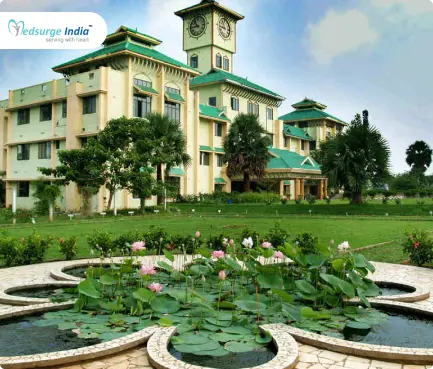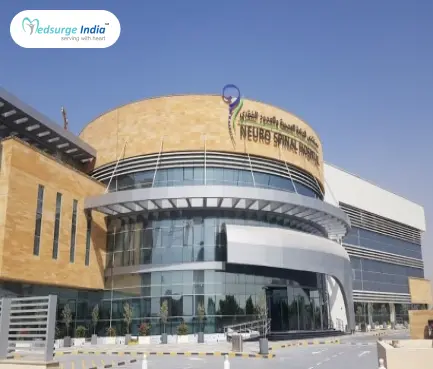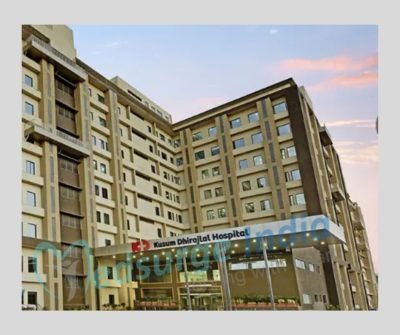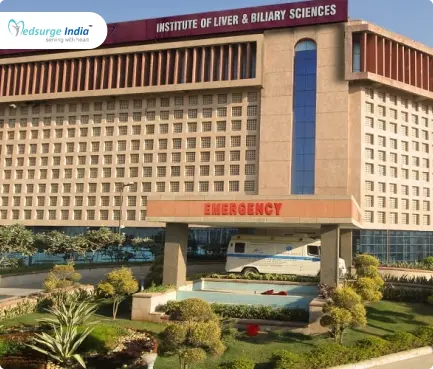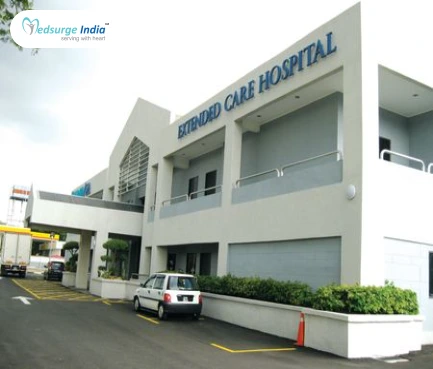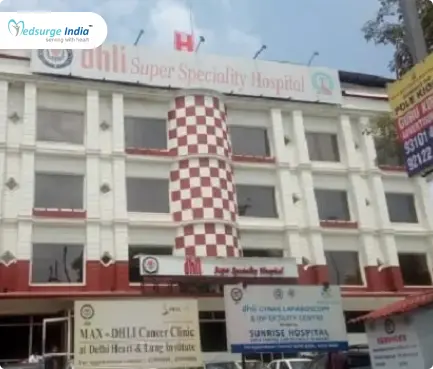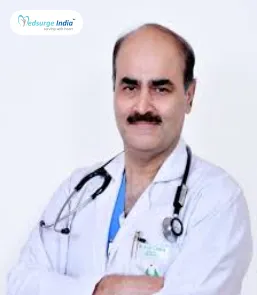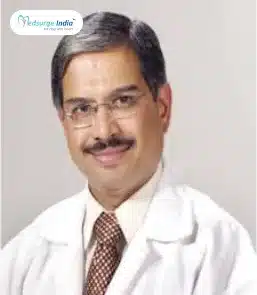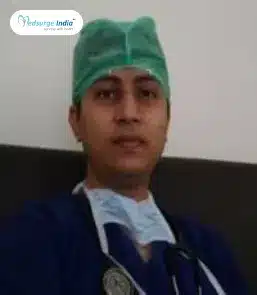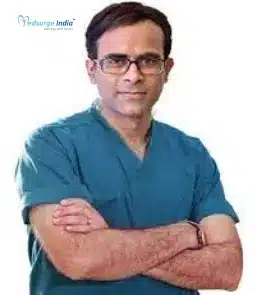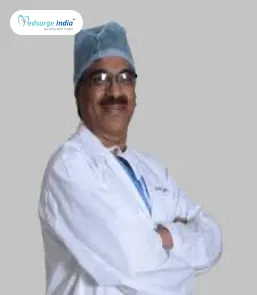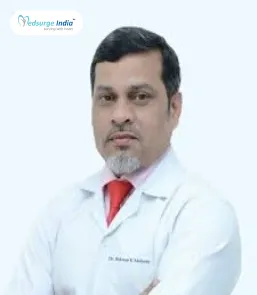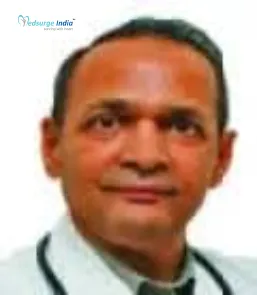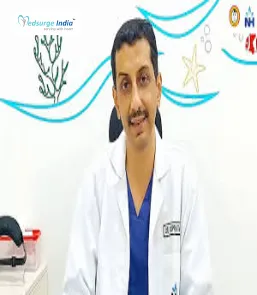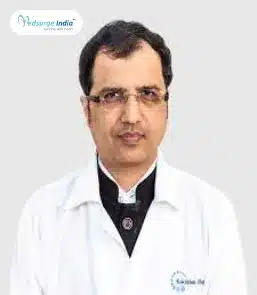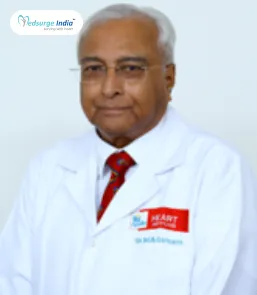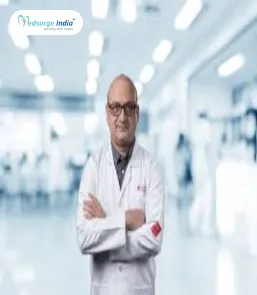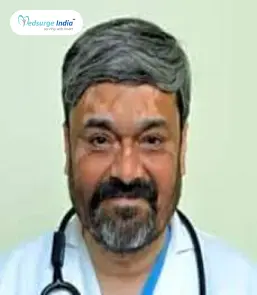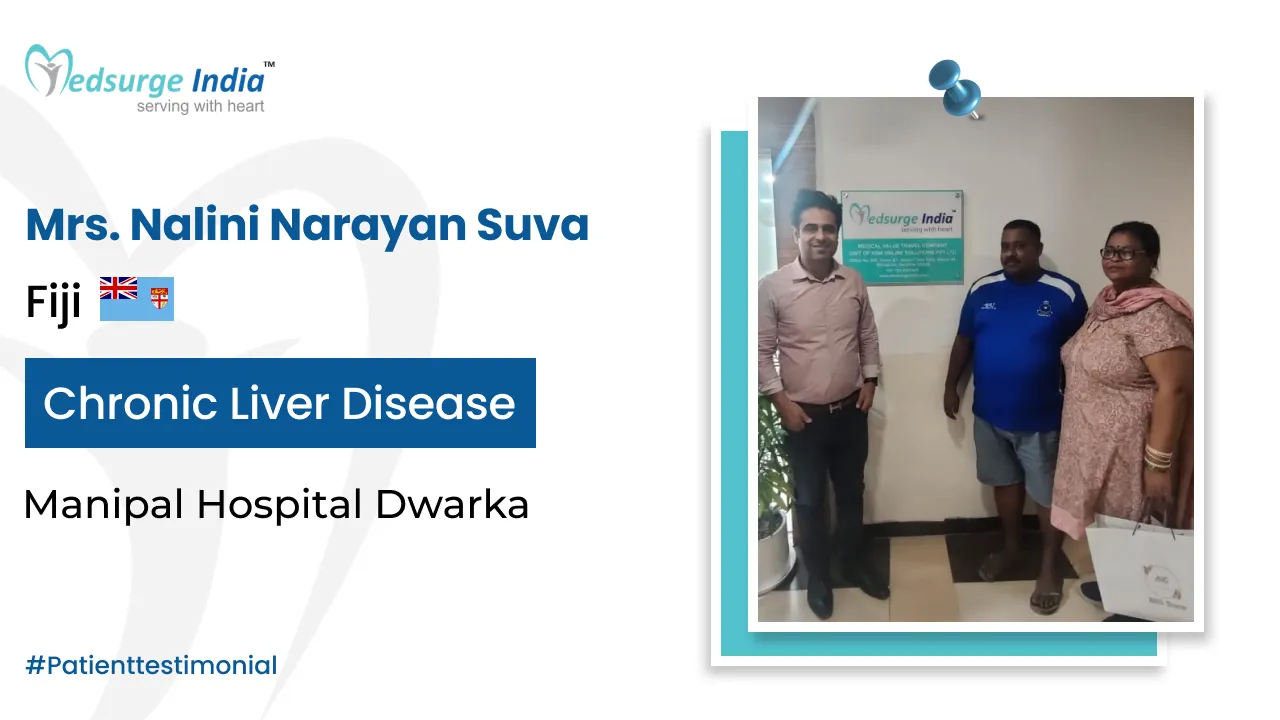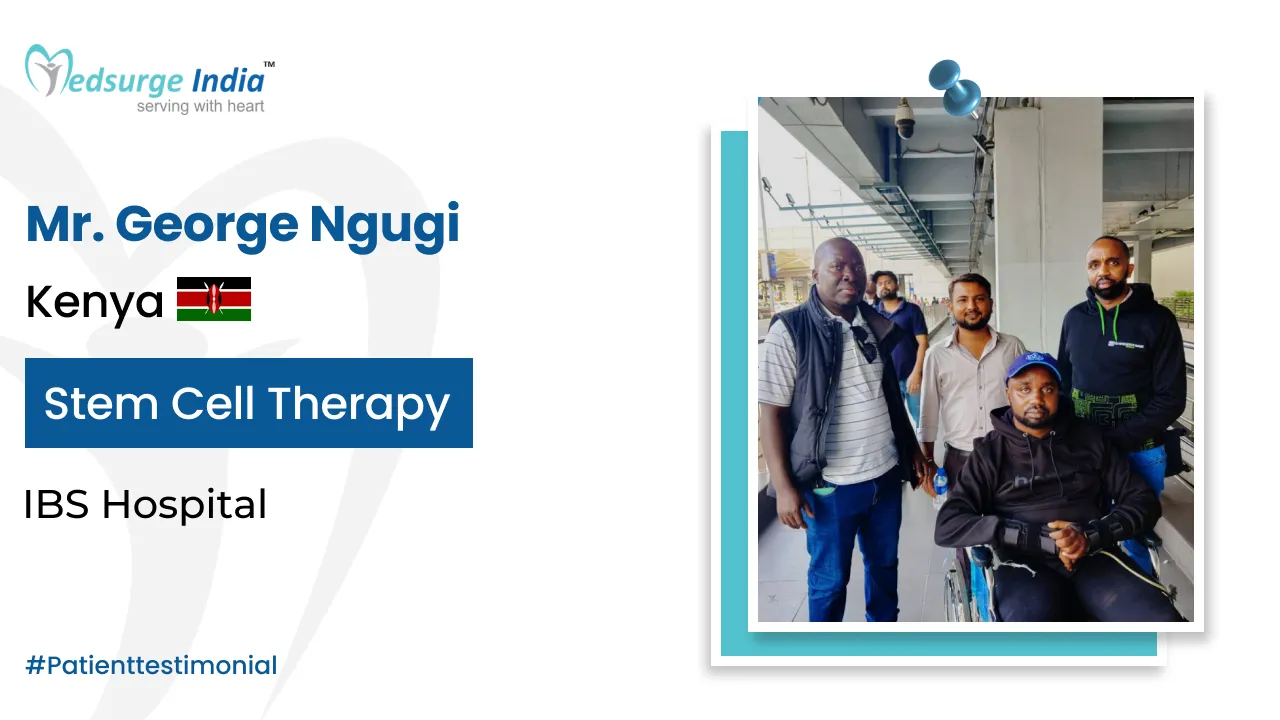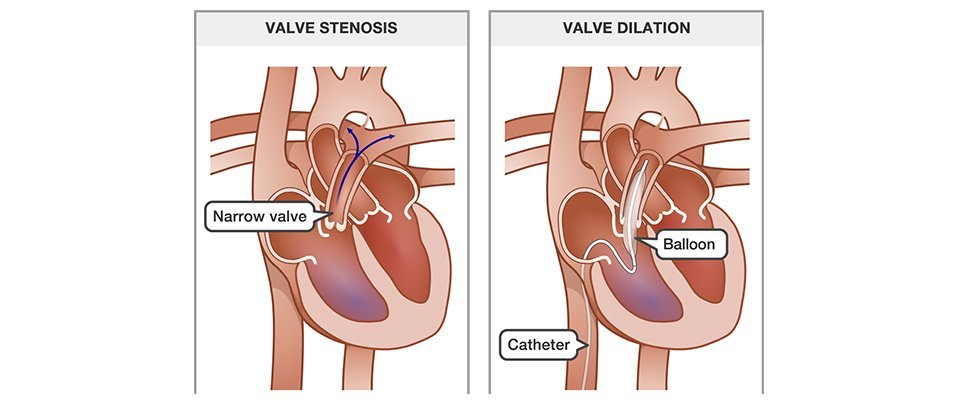
Balloon Valvuloplasty also referred to as valvulotomy or valvotomy is a process done to open or widen a narrow or rigid (stenotic) valve. This process utilizes a balloon catheter to extend the opening of your narrowed valve allowing more blood to flow through. This process offers temporary relief of symptoms. The most usual cause of narrowing from the aortic valve is aortic valve stenosis.
Balloon Valvuloplasty Cost in India
The average Balloon Valvuloplasty cost in India starts from USD 3800. It typically includes necessary preoperative tests, consultation with the doctor, the patient’s condition, and the type of procedure itself. However, please note that accommodation and transfers are not included in this cost.
Cost of Balloon Valvuloplasty in Different Cities in India
| Cities | Starting Price |
| Delhi | USD 3800 |
| Gurgaon | USD 3900 |
| Noida | USD 3800 |
| Mumbai | USD 4000 |
| Hyderabad | USD 3900 |
| Chennai | USD 3800 |
| Kolkata | USD 3800 |
| Bangalore | USD 4100 |
Note: Keep in mind that the above-mentioned cost provided is solely for the treatment. The overall cost of Balloon Valvuloplasty will be determined based on several factors.
Causes of Aortic Stenosis
Problems that can cause aortic valve stenosis include:
- Calcium buildup on the aortic valve. As you get older, calcium can develop on the uterus, which makes it thick and hard. This buildup happens over time, therefore symptoms typically don’t appear until after age 65.
- Congenital- centre flaw born with
- Rheumatic fever or endocarditis. These illnesses can damage the valve.
Indications for Balloon Valvuloplasty
- Children and young adults: Balloon valvuloplasty can be used successfully for Children, and young adults that have symptoms because of congenital heart flaws e.gbicuspid valve
- Pregnant women: Valvuloplasty might be utilized for pregnant women that get aortic valve stenosis symptoms while pregnant and cannot opt for surgery.
- As a stop-gap arrangement: When an individual is too ill, valvuloplasty can be utilized until the patient can receive the replacement process.
- Utilization for palliation- in patients who have severe conditions that can’t be cured.
Symptoms of Valvular Stenosis
Aortic valve stenosis is a gradual procedure. For several decades, you won’t feel any signs. However, if the valve will become so narrow (frequently one-fourth of its usual size) you begin having problems. Symptoms are frequently caused by exercise once the heart needs to work harder.
- Chest pain or pressure (angina)
- Fainting, Dizziness
- Easy fatigue
- Breathlessness
- Palpitations
- Oedema swelling of feet
There’s also a higher risk of sudden death involved.
Diagnostic Tests
Valve disease might be discovered during a routine medical examination.
- On Auscultation –heart murmur, that’s the sound of blood flowing throughout an abnormal heart valve. A murmur might be the primary clinical indication of valve disorder when you’ve got no symptoms
- Echocardiogram: An echocardiogram or “echo” uses sound waves to make an image of your heart. It reveals the various constructions of the heart and may demonstrate any abnormalities on your valves.
- Electrocardiogram (ECG),
- X-ray
Get Free Cost Estimation
Procedure
Balloon Valvuloplasty Procedure
Before Procedure
- Your complete medical and surgical history Mentioned
- The Adviser will explain the process to you
- Inform if you’re allergic to or are allergic to any medications, or have a history of bleeding ailments
- You’ll have to fast overnight prior to the process.
- Inform the doctor If you’re pregnant or suspect that you might be
- The doctor may discontinue some of your drugs or change a few doses. Let your physician know of all medications and supplements that you’re taking.
- You’ll Be required to undergo Regular tests Prior to the Process
During Procedure
- The process takes approximately 1-2 hrs
- (IV) the line is added and vitals will be monitored throughout the process.
- A local anaesthetic will be injected into the skin in the site, you will be given sedatives to assist unwind.
- Your health care provider will insert introducer, through an artery in the arm or groin
- After that, a thin flexible tube called a catheter is inserted through the introducer and threaded to the heart.
- When the catheter is in place, your physician will inject contrast dye to check at the region
- Once the tube reaches the narrowed heart valve, a balloon at the end of the tube is inflated. Your physician may inflate and deflate the balloon several times to open the valve.
- The balloon widens the valve opening.
- When the valve was opened, the physician deflates the balloon and eliminates the catheter.
- The physician will hold pressure on the insertion site. When the bleeding has stopped, a very tight bandage will be placed on the site.
After Procedure
- You’ll be changed to a recovery room for observation.
- Bed rest can change from 2 to 6 hours
- You may feel nostalgic in which the catheter has been inserted. This usually goes away in a couple of days.
- You Might Be given medication for pain or distress
- You can resume your normal diet after the process
- It’s important to keep the insertion site clean and dry
- It’s crucial to make some lifestyle adjustments to keep your heart healthy, for example, Quit smoking.
- Follow a heart-healthy diet and restrict sodium.
- Be active. Consult your physician on what degree and kind of exercise are best for you. You might have to steer clear of intense action.
- Stay at a healthy weight, or eliminate weight if you want to.
Complications of Valvuloplasty include:
- Pain, swelling tenderness at the catheter site
- Bleeding
- Damage to the valve causing immediate valve replacement
- Blood clot or damage to the blood vessel at the insertion site
- Abnormal heart rhythms
- Stroke
- New or worsening valve regurgitation
Factors That Can Affect Balloon Valvuloplasty Cost in India
There are various factors that can affect the cost of Balloon Valvuloplasty in India. Here we have listed you with the various factors that can affect the cost of Balloon Valvuloplasty in India.
- Patient Condition: The complexity of the disease along with the patient’s overall health can affect the duration of treatment, impacting the cost.
- Medication costs: Certain medicines can influence the overall cost of the treatment.
- Duration of treatment: Longer treatment courses involving multiple visits can lead to higher cumulative costs.
- Geographical location: Cost can vary widely depending on the region in India.
- Hospitalization expenses: The length of hospital stay and the level of nursing care required by the patient can add to the treatment expenses.
- Government policies and subsidies: Government healthcare schemes and subsidies can reduce out-of-pocket expenses for patients, affecting the affordability of the treatment.
- Medical tourism packages: Curated packages for international patients can include various services at a bundled cost, influencing the overall expense of treatment in India.
- Hospital reputation and infrastructure: Prestigious hospitals with state-of-the-art facilities may charge more for their services.
- The expertise and experience of medical professionals: Cardiologists with extensive experience and recognition often command higher fees, contributing to the treatment cost.
- The type and frequency of diagnostic procedures: Regular monitoring with advanced imaging and laboratory tests can increase treatment costs due to the high price of these diagnostic methods.
- The choice of treatment modality: Opting for newer or more advanced treatment options or precision medicine can be more expensive than traditional approaches.
India provides excellent medical services and facilities for patients seeking treatment, including balloon valvuloplasty. These facilities are on par with renowned healthcare centers around the globe. Additionally, the cost of accommodation, meals, and transportation is also included. Moreover, international patients can save a significant amount, up to 30-40%, on the expenses of balloon valvuloplasty cost in India compared to their native countries.
Top Cardiologists in India
The Most Important Frequently Asked Questions
Q: Where Are Aortic Valves Located?
A: Aortic valve is located between the left ventricle and the aorta.
Q: What Is the Function of Valves?
A: The valves open and Shut thus regulating the Blood Circulation from one room to another.
Q: Where Is the Procedure Performed?
A: Valvuloplasty is performed in the Cardiac Catheterization Laboratory.
Q: How Long Does the Procedure of Balloon Valvuloplasty Take?
A: Valvuloplasty generally takes approximately 1 – 2 hours.
Q: Why Is Balloon Valvuloplasty Not Recommended for Older Adults?
A: Balloon valvuloplasty isn’t too powerful in older adults because of restenosis since the valve becomes narrowed within 6 to 12 weeks following this procedure.
Q: Why Is it Important to Inform the Doctor If You Are Pregnant or Suspect Pregnancy?
A: Radiation exposure during pregnancy can cause birth defects, therefore to protect against a possibility of injury to your fetus you must notify the doctor if you’re pregnant or suspect pregnancy.
Q: What Are the Warning Signs of Infection to Be Kept in Mind After a Procedure?
A: The warning signs are:
- Fever
- Increased pain, redness, swelling, or bleeding or another drainage from the insertion site
- Chest pain or pressure,
- Nausea, profuse sweating, dizziness
- Decreased urination
- Swelling
Q: What Is the Prognosis of Balloon Valvuloplasty?
A: Balloon valvuloplasty is usually an effective remedy for aortic valve stenosis in children, but has very limited efficacy in older adults. In many older adults, the valve becomes flaccid (restenosis) in 6 to 12 months following this procedure.
Q: Is Valvuloplasty a Permanent Solution to Aortic Stenosis?
A: No valvuloplasty isn’t a permanent alternative. In adults, balloon valvuloplasty can provide temporary relief and enhance heart function, but a lot of times there are opportunities for restenosis, making valve replacement finally vital.
Q: When Will I Be Discharged from the Hospital After Balloon Valvuloplasty?
A: You will probably remain overnight at the hospital following having a valvuloplasty to be detected for any issues following the procedure.
Q: What Is Aortic Stenosis?
A: An aortic sclerosis is a form of valve disorder wherein there’s a slow hardening of the valves because of calcium buildup on the valves, resulting in stiffening of this valve and don’t open all of the ways. This produces a narrowed opening for blood to pass through. This heart needs to work harder to pump blood through this smaller gap.
Q: How Is it Aortic Stenosis Treated?
A: If you’ve got mild or moderate aortic valve stenosis and your physician will see you frequently for tracking. You will most likely not have surgery before your stenosis is severe. Some young people or pregnant women might possess balloon valvuloplasty to expand the valve opening. In case you’ve got severe stenosis, you likely need a valve replacement. Valve replacement could be carried out with an open-heart operation or even a minimally invasive procedure.
Q: What Happens to Severe Aortic Stenosis Without Any Treatment?
A: If you’ve got severe stenosis but do not need to experience therapy you’ve got a high risk of dying suddenly or developing heart failure.
Q: What Are the Eligibility Requirements for a Medical Visa to India?
A: If you’ve got a valid passport and visa and are looking for medical care in a reputed and recognized hospital in India then you may apply for a medical visa to India. In accordance with 2 attendants that are blood, relatives may accompany the individual under different attendant visas.
Q: Are the Hospitals in Your Panel Internationally Accredited?
A: The Joint Commission International (JCI), which will be a US-based service, awards certification to global associations that satisfy the strict criteria set forth by the commission. In Medsurge India, we’re pleased to associate with many JCI licensed Indian hospitals within our panel.
Top Hospitals for Balloon Valvuloplasty in India
Top Doctors for Cardiology And Cardiac Surgery
Dr. V. Narendra Kumar
Senior Consultant
Experience: 13+ years of experience
Rela Hospitals, Chennai
Chennai, India
Dr. Yeriswamy M C
Consultant
Experience: 16 years of experience
Manipal hospitals Life’s On, Jayanagar
Bangalore, India
Dr. Arun Kumar Chopra
Director
Experience: 26 years of experience
Fortis Escorts Hospital, Amritsar
Amritsar, India
Dr. Ayan Kar
Senior Consultant
Experience: 14+ years of experience
NH Rabindranath Tagore International Institute of Cardiac Sciences, Kolkata
Kolkata, India
Dr. Rana Rathore Roy
Consultant
Experience: 12 years of experience
Medica Superspecialty Hospital
Kolkata, India
Dr. Bikram K. Mohanty
Director
Experience: 25 years of experience
Venkateshwar Hospital, New Delhi
New Delhi, India
Dr. Ravindra K Tongia
Director
Experience: 45 years of experience
Fortis Escorts Hospital Jaipur
Jaipur, India
Dr. Brajesh Kumar Kunwar
Senior Consultant
Experience: 12 years of experience
Fortis Hiranandani Hospital, Vashi
Mumbai, India
Dr. Yashwath A L
Experience: 14+ years of experience
RL Jalappa Narayana Heart Centre, Tamaka, Kolar
Kolar, India
Dr. Supratim Sen
Senior Consultant
Experience: 13 years of experience
Kokilaben Dhirubhai Ambani Hospital Mumbai
Mumbai, India
Dr. G N Prasad
Senior Consultant
Experience: 32 years of experience
SIMS Hospital, Vadapalani, Chennai
Chennai, India
Dr. Pravin Kahale
Consultant
Experience: 11 years of experience
Kokilaben Dhirubhai Ambani Hospital Mumbai
Mumbai, India
Dr. Girinath M R
Consultant
Experience: 45 years of experience
Apollo Hospitals, Greams Road, Chennai
Chennai, India
Dr. Pradeep Narayan
Senior Consultant
Experience: 15+ years of experience
NH Rabindranath Tagore International Institute of Cardiac Sciences, Kolkata
Kolkata, India

